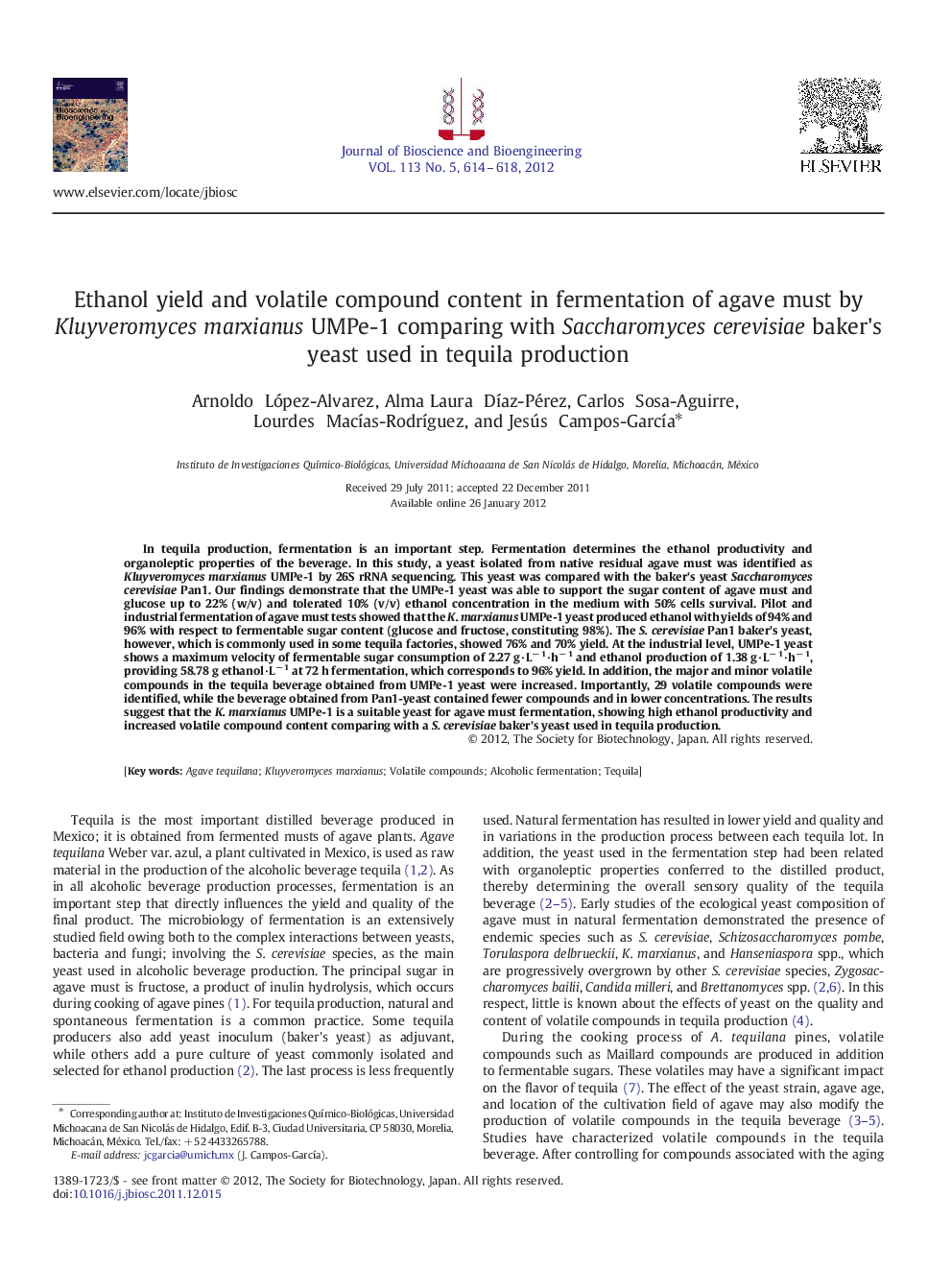| Article ID | Journal | Published Year | Pages | File Type |
|---|---|---|---|---|
| 21144 | Journal of Bioscience and Bioengineering | 2012 | 5 Pages |
In tequila production, fermentation is an important step. Fermentation determines the ethanol productivity and organoleptic properties of the beverage. In this study, a yeast isolated from native residual agave must was identified as Kluyveromyces marxianus UMPe-1 by 26S rRNA sequencing. This yeast was compared with the baker's yeast Saccharomyces cerevisiae Pan1. Our findings demonstrate that the UMPe-1 yeast was able to support the sugar content of agave must and glucose up to 22% (w/v) and tolerated 10% (v/v) ethanol concentration in the medium with 50% cells survival. Pilot and industrial fermentation of agave must tests showed that the K. marxianus UMPe-1 yeast produced ethanol with yields of 94% and 96% with respect to fermentable sugar content (glucose and fructose, constituting 98%). The S. cerevisiae Pan1 baker's yeast, however, which is commonly used in some tequila factories, showed 76% and 70% yield. At the industrial level, UMPe-1 yeast shows a maximum velocity of fermentable sugar consumption of 2.27 g·L− 1·h− 1 and ethanol production of 1.38 g·L− 1·h− 1, providing 58.78 g ethanol·L− 1 at 72 h fermentation, which corresponds to 96% yield. In addition, the major and minor volatile compounds in the tequila beverage obtained from UMPe-1 yeast were increased. Importantly, 29 volatile compounds were identified, while the beverage obtained from Pan1-yeast contained fewer compounds and in lower concentrations. The results suggest that the K. marxianus UMPe-1 is a suitable yeast for agave must fermentation, showing high ethanol productivity and increased volatile compound content comparing with a S. cerevisiae baker's yeast used in tequila production.
